Research

Lack of diversity becomes an existential problem
The dwindling genetic diversity in fields is becoming an increasing problem. Unfortunately, this problem is growing steadily, partly because politicians in Switzerland and the EU are viewing the issue through ideological lenses instead of listening to science.

Research into fungal diseases in Lyon
Fungal diseases are one of the greatest threats to global food production. They endanger crops, cause billions in damage every year and have always put farmers under pressure. A detailed report by RTS provides insights into Bayer's global research and development centre in Lyon, where new, environmentally compatible fungicides are being researched.

Science sounds the alarm: Federal Council draft slows down innovation
The new genomic breeding methods are regarded worldwide as a source of hope for climate-resilient agriculture – precise, efficient, and safe. While countries such as the US, Japan, and soon the EU are pushing for deregulation, the Federal Council's regulatory proposal remains tentative. Now researchers and industry are sounding the alarm: the proposed rules are so strict that they would effectively block innovation and application.

Approvals are becoming a brake on innovation worldwide – and agriculture is being left behind
New findings from the United States highlight what has long been a reality in Europe and Switzerland as well: the development and approval of new crop protection products has become such a complex, lengthy, and costly process that even innovative, sustainable solutions can hardly reach the market anymore.
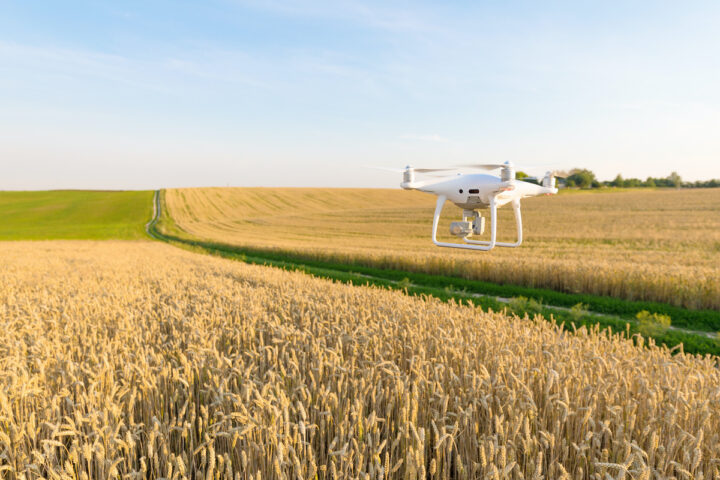
Why we need high-tech for tomorrow's agriculture
From genome editing to precision field spraying – innovations can strengthen the agriculture of tomorrow. They help to ensure that agricultural land can be used better. Crops are protected more efficiently. According to a survey by gfs.bern, the Swiss are very open to the use of modern technologies. This also applies to new breeding methods such as genome editing.

Those who demand one hundred percent safety in innovation will end up with nothing at all.
Europe – and unfortunately Switzerland as well – are world champions in worrying. While the US and emerging economies are moving ahead boldly, Europe is blocking itself with excessive caution. The race for the technological future? Europe is on the verge of losing it.

Cool thanks to Caribbean genes: the heat-defying calf!
Cows are also suffering from global warming. Hot temperatures have a negative effect on their metabolism. Now, the first solutions are emerging: for example, Strickhof in Lindau is home to one of the first Slick gene cows in the world. These are more heat tolerant than conventional cows and can therefore withstand global warming.

False paths in climate protection
Under the title “The Great Redistribution”, Beat Gygi vividly explored, in a conversation with Professor Philipp Aerni in Weltwoche, the pitfalls of the COP29 climate conference in Baku in 2024. According to COP29, transfer payments to countries in the Global South are to be increased, yet economic considerations and efficiency play only a minor role. The NGO-dominated UN conference fails to think of sustainability in a comprehensive way. Instead of relying on innovation, much remains bogged down in interest-driven politics. This is particularly true in Europe, especially in agricultural policy.
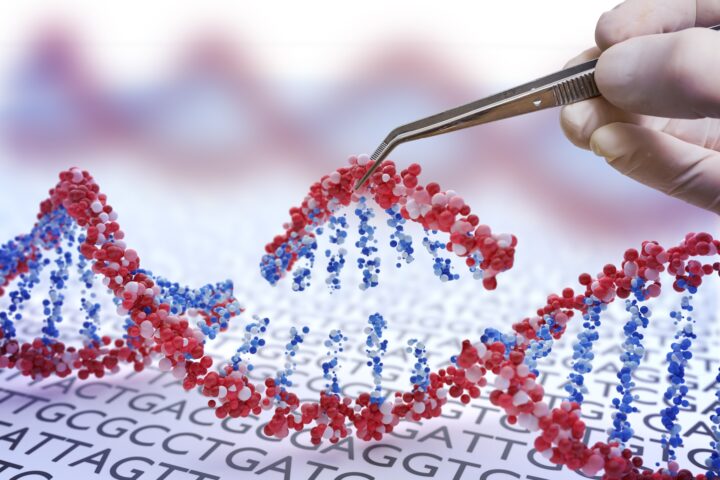
Rapid further development of the genetic scissors
CRISPR-Cas has been used worldwide since 2012 to modify genes in organisms with pinpoint accuracy. With the help of protein engineering and AI algorithms, researchers at the University of Zurich have now developed a new, more compact ‘genetic scissors’. This and similar variants will make it possible to edit genes ever more efficiently.

Using Crispr to combat climate change
In the Tages-Anzeiger newspaper, Nobel Prize winner Jennifer Doudna talks about the opportunities and risks of gene scissors. The tool can be used to specifically treat hereditary diseases, breed drought-tolerant plants and reduce greenhouse gas emis-sions from cows.
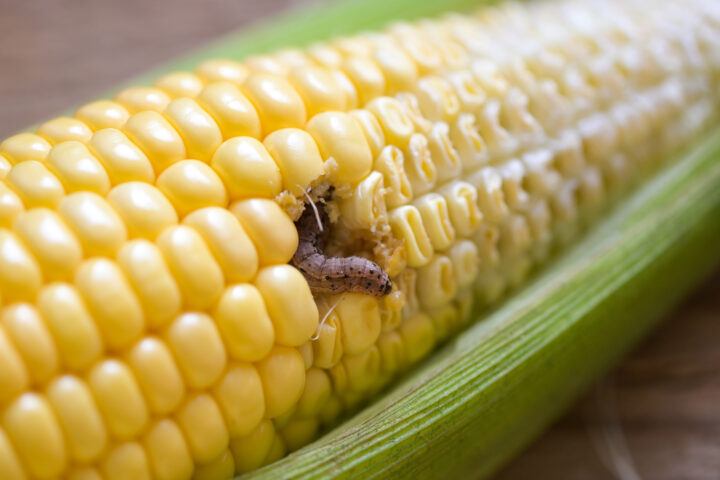
Anxious sweat as a cry for help
Plants live dangerously. They are surrounded by predators. But they are not completely at their mercy. Decades of research have shown this. For example, plants emit odours when attacked. This realisation could lead to new strategies for plant protection. However, it is still uncertain whether this will ever lead to a widely used product.

It pays to take a closer look
Pesticides are to blame for an increase in brain tumours in children in the Zürcher Weinland and the Bernese Seeland, according to a study carried out three years ago. Experts commissioned by the federal government have now come to a different conclusion: the results could also have been accidental.

Global events require adjustments
The Swiss want as much local food as possible on their plates. A desire that is becoming increasingly difficult to fulfil. Farmers are finding it increasingly difficult to protect their harvests. No wonder the level of self-sufficiency is falling.
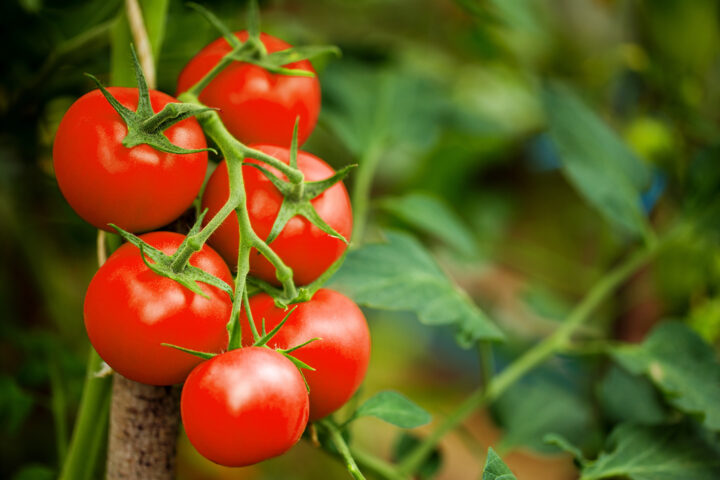
Science demonstrates the concrete benefits of new breeding methods
The Swiss Academy of Sciences (SCNAT) recognizes the significant opportunities offered by new breeding methods. In a new dossier, the Academy presents five examples of crops cultivated using genome editing, which have high potential for Swiss agriculture. This publication emphasizes the scientific consensus on the use of genetic scissors. The new breeding methods offer numerous advantages for the environment and agriculture.
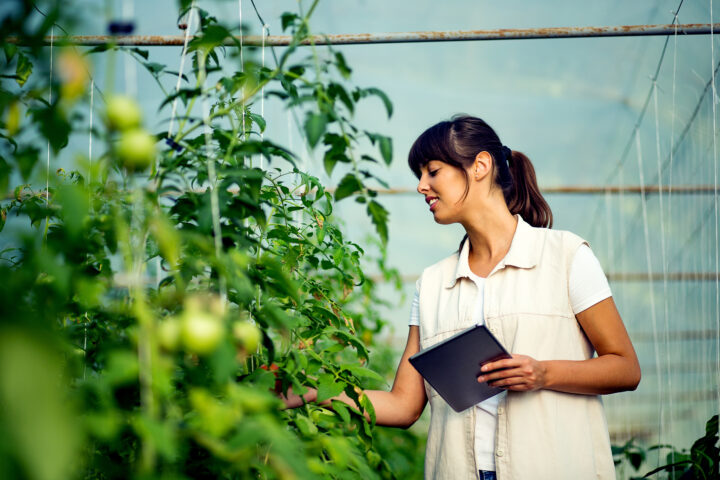
«Biologicals» – biologically active substances from research
Modern crop protection products must be safe, targeted and short-lived – i.e. degraded shortly after reaching their target – without leaving behind biologically active degradation products.
Content in German
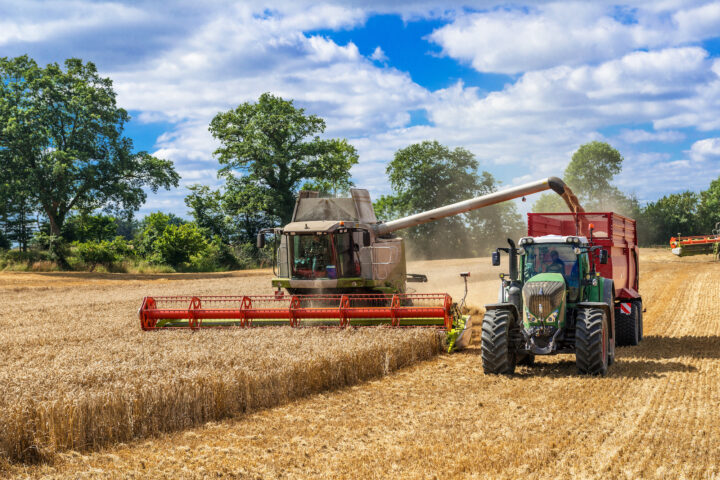
The great benefits of biotechnology in agriculture
Bioengineered crops have been cultivated in many parts of the world for around 25 years. Several publications bear witness to the great benefits of biotechnology in agriculture. The cultivation of the plants has a positive effect on the environment, the climate and yields for farmers.
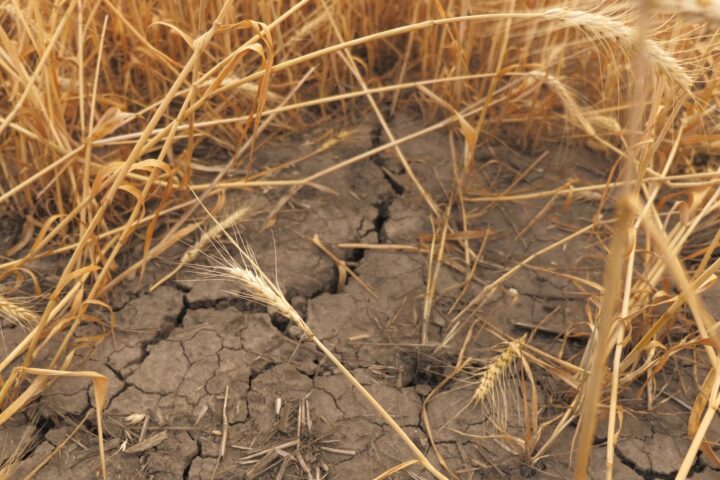
Drought-tolerant wheat from Argentina
Heat waves are posing a major challenge to cultivation around the world. Water shortages and droughts are resulting in heavy crop losses for the agricultural industry. Because droughts will be more frequent in the future, the search for plant varieties that consume less water is a top priority. One drought-tolerant wheat variety from Argentina is showing great potential.

Genetically modified plants contribute to the fight against global warming
The large-scale cultivation of genetically modified crops would counteract global warming. American and German researchers come to this conclusion in a study.
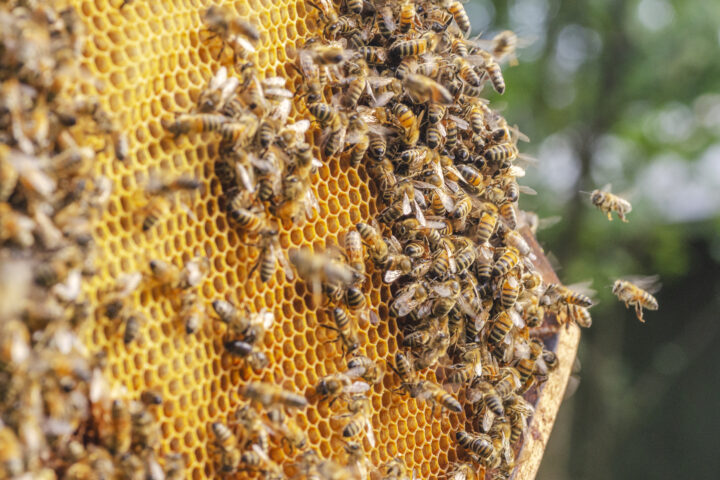
Honey bees not on brink of extinction
For about 15 years now, the story of alleged colony collapse disorder has persisted in the media, often attributed to pesticides and genetically modified plants. There is increasing evidence, however, that worldwide honey bee populations remain stable or are even growing.
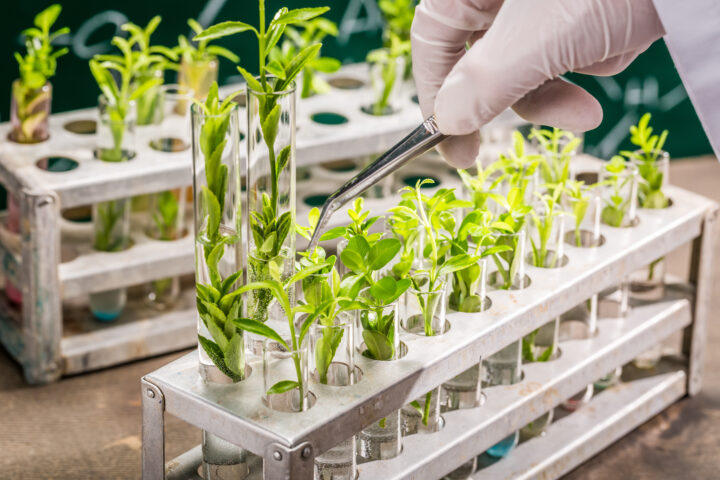
Does the world even need genome-edited plants?
This question is often raised by opponents of modern breeding methods. As is almost always the case: The market provides an answer. And it looks pretty clear.

Climate change: lower harvests starting as early as 2030?
Climate change affects the quality and quantity of harvests. According to a recently published study, there is a risk of significantly lower maize harvests as early as the mid-2030s. Africa and South America are primarily affected. However, Europe must also be careful that agricultural production is not neglected.
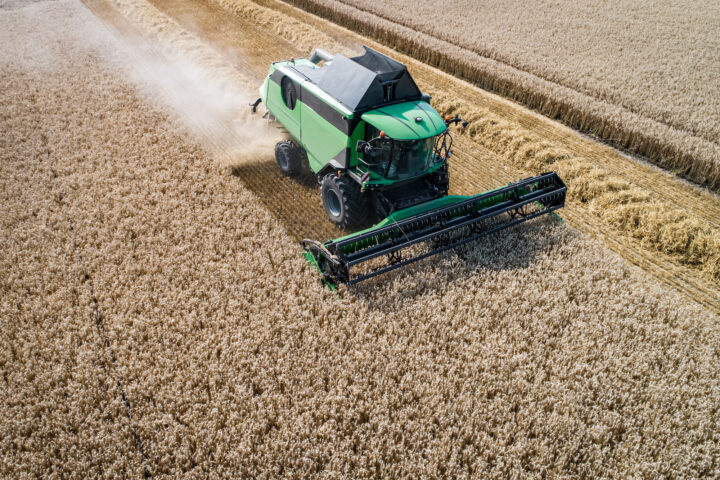
Productive agriculture helps the climate and biodiversity
There is a common belief that organic farming is good for the climate and that it promotes biodiversity. However, this notion is increasingly be proven incorrect.
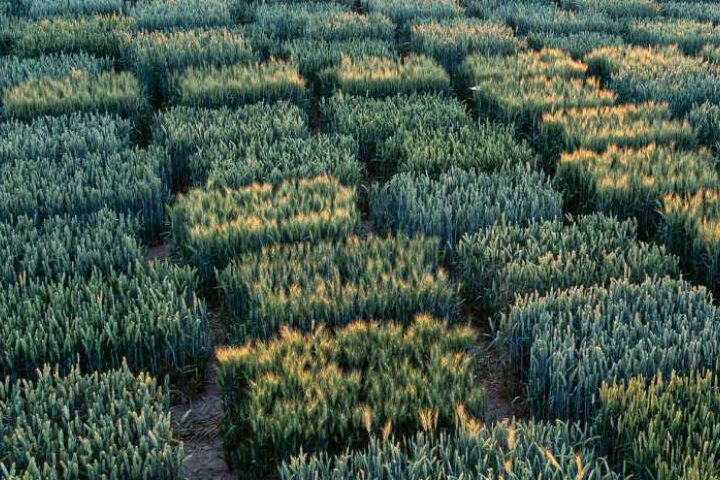
Optimising nature
The romanticized conception of “natural” is deceptive. Very little of what we eat today developed naturally. “For 12,000 years, people have selected plants based on their characteristics, in an effort to make them edible and more productive,” says Bruno Studer, professor of Molecular Plant Breeding at ETH Zurich. Agriculture has developed through artificial selection.
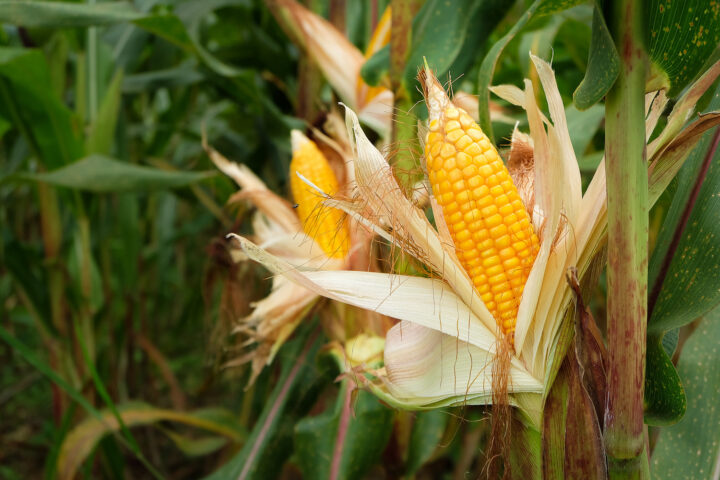
Insect-resistant SmartStax maize does not harm water fleas
Farmers around the world are growing pest-resistant varieties of maize that contain additional genes that protect them against damage caused by insects.
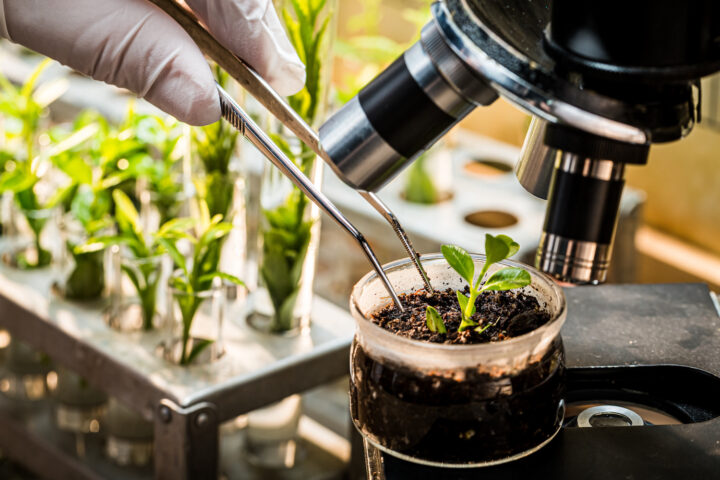
Using CRISPR/Cas9 to fight potato blight
The Nobel Prize-winning CRISPR/Cas method now makes it possible to breed resistant varieties and may reduce the use of pesticides in agriculture.

Seven years of cutting-edge research – with the handbrake on
In its February 5 issue, the “BauernZeitung” newspaper looked at the only facility in Europe where field research involving genetically modified plants can be carried out.
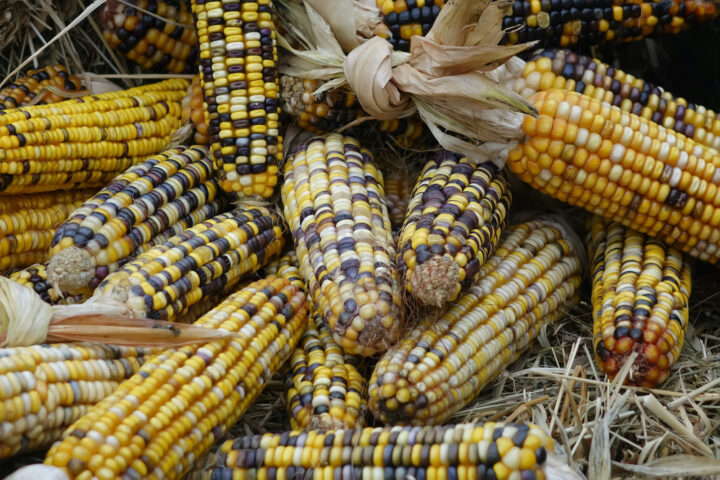
Genetically modified maize – a success story, even in skeptical Europe
Europeans are still resisting the cultivation of genetically modified crops – but this doesn’t mean they want to forgo the benefits of these products.

Animal feed: Domestic rapeseed instead of imported soy
The protein-rich press residues of rapeseed would be ideally suited as feed for livestock with the help of "genome editing". Instead of imported soy, domestic rapeseed could be fed to animals.
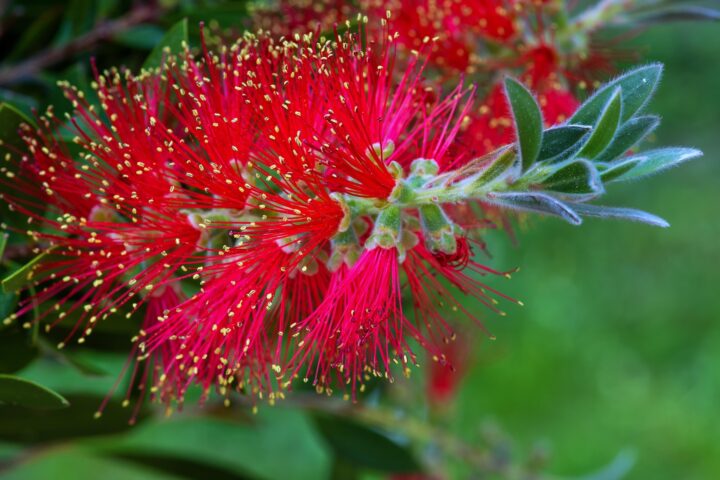
Observing, understanding and improving on nature
Years of work go into developing a new crop protection product. It takes more than 10 years to move from the original idea to the market. In many cases, researchers draw inspiration from nature.
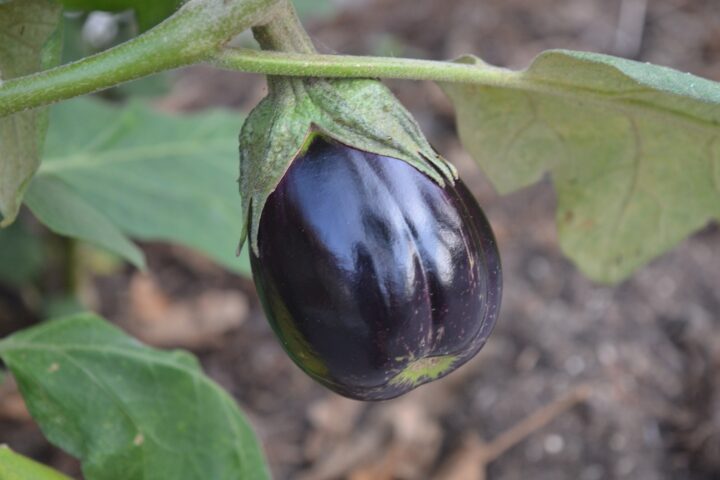
Healthy eggplants thanks to Bacillus thuringiensis
Insect pests like fruit and shoot borers pose a significant threat to food security in many regions of the world. External application of chemical insecticides has proven unsuitable. Therefore, the research industry has high hopes for biologics.

When panic collides with knowledge
Chemophobia is the scientific term. And it refers to a panicky fear of chemicals. In contrast, the natural world is seen as the source of all good things. From a scientific point of view, this simplified view is nonsense. Synthetic is not synonymous with toxic, as laypeople often think. The dose is decisive for the toxicity of both natural and synthetic substances.

